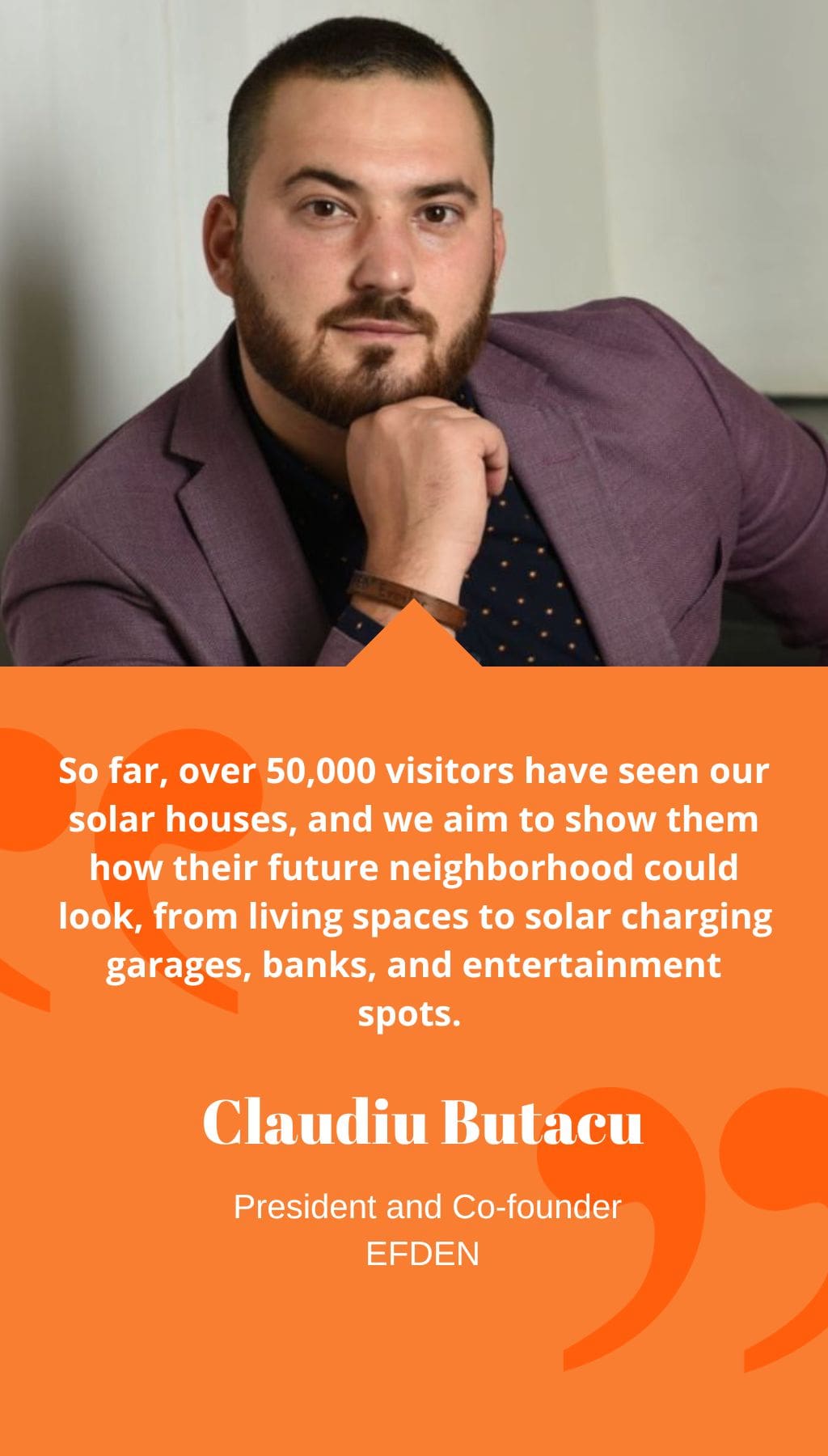
- Romania | 28 January 2019

EFdeN is a unique organization in Romania, and you seem to have gone beyond aiming for the grand prize at Solar Decathlon competitions – please tell us more about what drives you.
EFdeN was founded by a group of students with the initial goal of participating in Solar Decathlon competitions, which are like the Olympics of solar houses. We established our NGO in 2013 to provide financial and legal support for teams and individuals participating in future competitions. In 2014, we reached the final stage of the competition in Versailles and defined our brand as f(N), a mathematical function where N represents nature, in addition to symbolizing energy efficiency in increasing urban density. We aim to educate and shift public mentality toward green energy adoption through our can-do attitude and actions, rather than identifying as a business or consultancy. We seek funding through private companies and ongoing fundraising to participate in competitions and expand our reach.
Our houses are built as prototypes, modular, and transportable to serve as an example of what could be done at a larger, commercial scale. We use plug-and-play solutions for quick assembly and disassembly, combining architecture with energy efficiency mechanisms like a Lego house. We aim to set an example and inform the public, from kindergarten children who learn sustainability through our coloring books to workshops and campus visits for teenagers and adults. We mostly work with university students and encourage them to join EFdeN as volunteers.
What are your views on the solar panel project put forward by AFM and its associated pitfalls?
AFM has discussed implementing solar panels with us, and we aim for balance. The authorities seem genuinely interested in this project, but hurdles still hinder the process for residents and implementation companies. One topic awaiting a decision in May is whether residents still need building permits, which are infamously difficult to obtain. Taking out building authorization can pose real dangers to residents whose houses cannot support the weight and new challenges posed by panel installation. We believe keeping permits but allowing for special circumstances to have them released promptly is the solution. On May 24th, we launched The Prosumer’s Guide, offering necessary information available at energiata.org. Our next project is a prosumers’ map.
One of the industry’s pain points is the availability of skilled human resources – what is your angle on talent pool availability and your role in preparing students for the work field?
Four years ago, we held a workshop addressing the crisis in human resources. Many students wished to avoid heavy labor, preferring managerial roles beyond their field or moving abroad, with over 5 million Romanians having left the country. Recently, the industry approaches us as an HR provider. We see awareness from universities and the industry. EFdeN prepares students by placing them in real-life situations that mimic future work environments. However, many fresh employees are not offered livable wages for current living conditions in Bucharest, causing Romania to lose potential future experts. We bridge the gap between older generations’ knowledge and experience and our fresh skills and know-how.
What are your plans for the next two to three years?
We plan to stay on our path as an NGO focused on constructing solar modular homes. The real estate market is not yet ready to adopt solar houses at a commercial scale, except for the luxury segment. Our long-term dream is to make this campus a pilot project, EFdeN Sustainable City, employing green technologies in an integrated manner. So far, over 50,000 visitors have seen our solar houses, and we aim to show them how their future neighborhood could look, from living spaces to solar charging garages, banks, and entertainment spots. We are interested in Solar Decathlon 2021 in Germany, which requires us to develop a new housing prototype.














